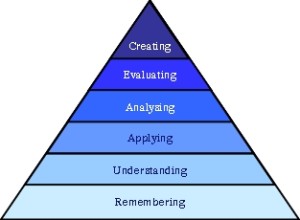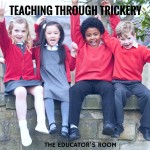Week 3/11 – 3/15
 One of the things that I love doing as a teacher, to keep my students focused on reading their notes from class when at home, is giving pop quizzes in class. My kids hate it… I hated it as a student, but I understand the purpose and I do it often. Some folks may not see the merit in giving pop quizzes and I understand that one of those reasons is because a pop quiz seems more like a “gotcha”, but I believe that by having pop quizzes, I am reminding students to be ready to show me that they’ve internalized the lessons that I taught them.
One of the things that I love doing as a teacher, to keep my students focused on reading their notes from class when at home, is giving pop quizzes in class. My kids hate it… I hated it as a student, but I understand the purpose and I do it often. Some folks may not see the merit in giving pop quizzes and I understand that one of those reasons is because a pop quiz seems more like a “gotcha”, but I believe that by having pop quizzes, I am reminding students to be ready to show me that they’ve internalized the lessons that I taught them.
What I will say is that the issue really isn’t the legitimacy of the pop quiz itself, nor with assessing in general. The question that should be posed is what and how are we assessing students? Are we looking for basic information or are we searching for whether or not our students are engaged in deep learning? Unfortunately, I can admit to being guilty of the former. Many teachers can for that matter. However, I can thankfully say that I am walking my way to the latter.
Moment of the Week
This week, I gave my freshman a test on our studies of Africa. The test was made up with multiple choice questions and short answer questions. There was a mix of fact based, comprehension and some application questions, but I hardly put any questions on the test that required analysis or evaluation. This week, we also had professional development and it was a good one that spoke to the very issue of questioning and assessment. One of our elementary school teachers presented on Bloom’s Taxonomy; he depicted the different levels of questioning and thinking when learning. He really explored how and why we question our students and how we can use the different levels of questioning to achieve varying results among our students. He specifically said that student grading is meaningless when we don’t ascribe deep learning to those grades and often times, we (teachers) only ask of our students the basic facts of any given lesson or theory but that does not require any thinking, just remembering and memorizing. With Bloom’s Taxonomy as a framework, we can begin to craft our questioning, both within the classroom and on our written assessments, in a way to get at the heart of what we really seek from our students; whether or not deep learning has occurred.
Lesson of the Week
I realized that as a history teacher, I can get bogged down in the facts, events, dates, people and places. My history teachers growing up did the same thing. They stressed those things and held all of those things in high regard. But when I think of why I love the study of history so much, people, places and dates is only a fraction why. History promotes critical inquiry, critical thinking and problem solving. Learning and studying history allows us to understand our past, make the connections between our past and our present and use that history to chart our future and better communicate and fellowship with humanity. Asking a student to give me the two sides in World War II, while necessary to know, doesn’t express that a students understand the intricacies of the issues surrounding the war and how the outcome of the war charted the course of the current world we live in.
Regardless of the content area, we (teachers) have to do a better job with questioning our students and marking the purpose of what we teach. Yes, the purpose of teaching fractions is for kids to understand how we can break down whole numbers into pieces. Yes, the purpose of teaching chemical equations is for kids to understand how two or more chemicals react with one another… and yes, teaching about the American Revolution is important to see the birth of our nation, but we should take inventory and reassess exactly why we want students to learn these things and what exactly we hope that they gain from learning all of these lessons that we teach. It requires that we actually look inside ourselves and bridge the gap between (1) what we believe is important for our students the learn, (2) the academic goals of our school, our district, and our state, and (3) what we believe is important for students to internalize in relation to their environment and both their personal & socio-historical experiences. Of course, that takes time on behalf of us faculty members; however, taking the time in adding high level questioning in our assessments means that there is greater meaning in the grades we give and greater meaning on the lessons we impart on our students.





